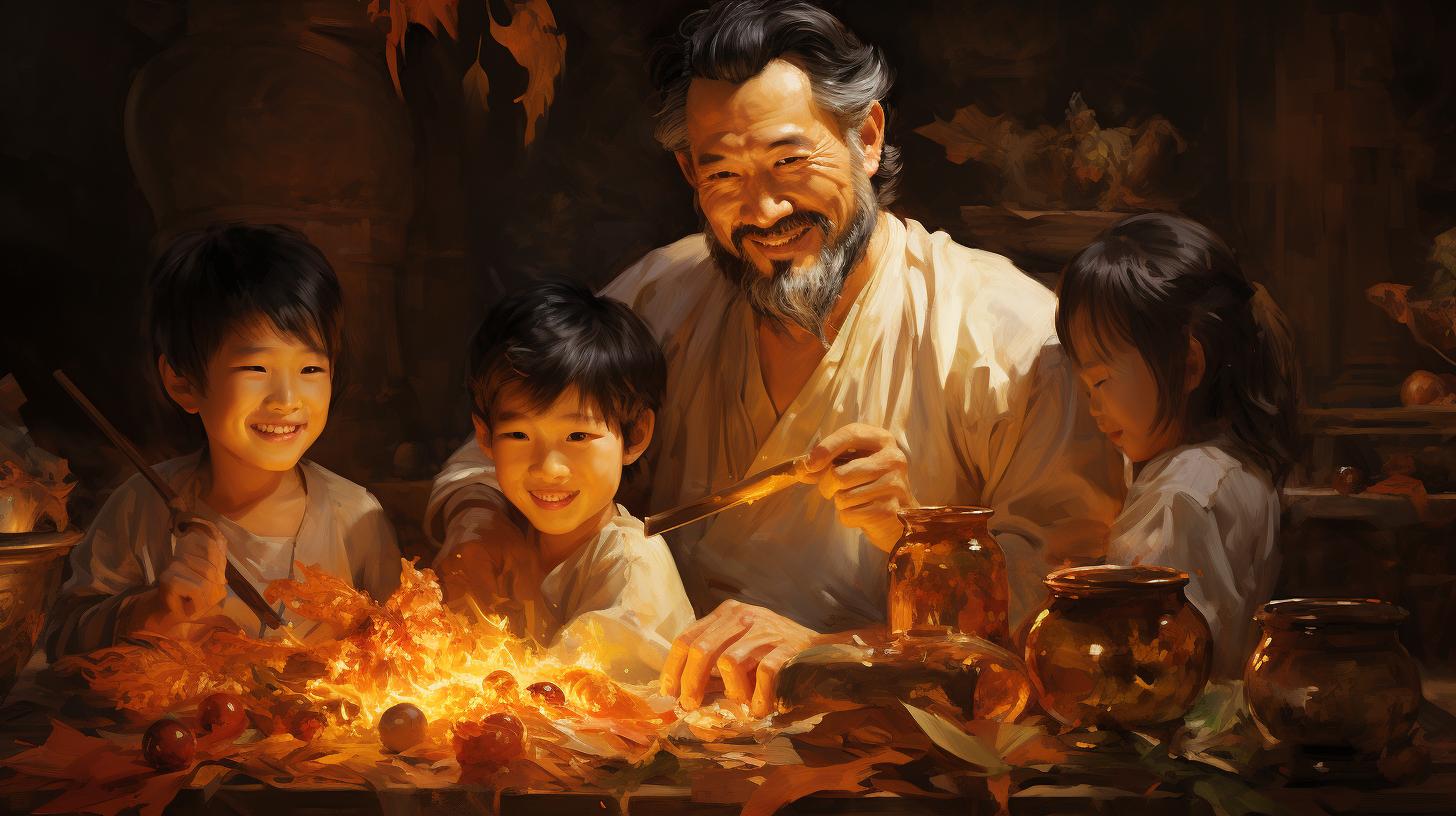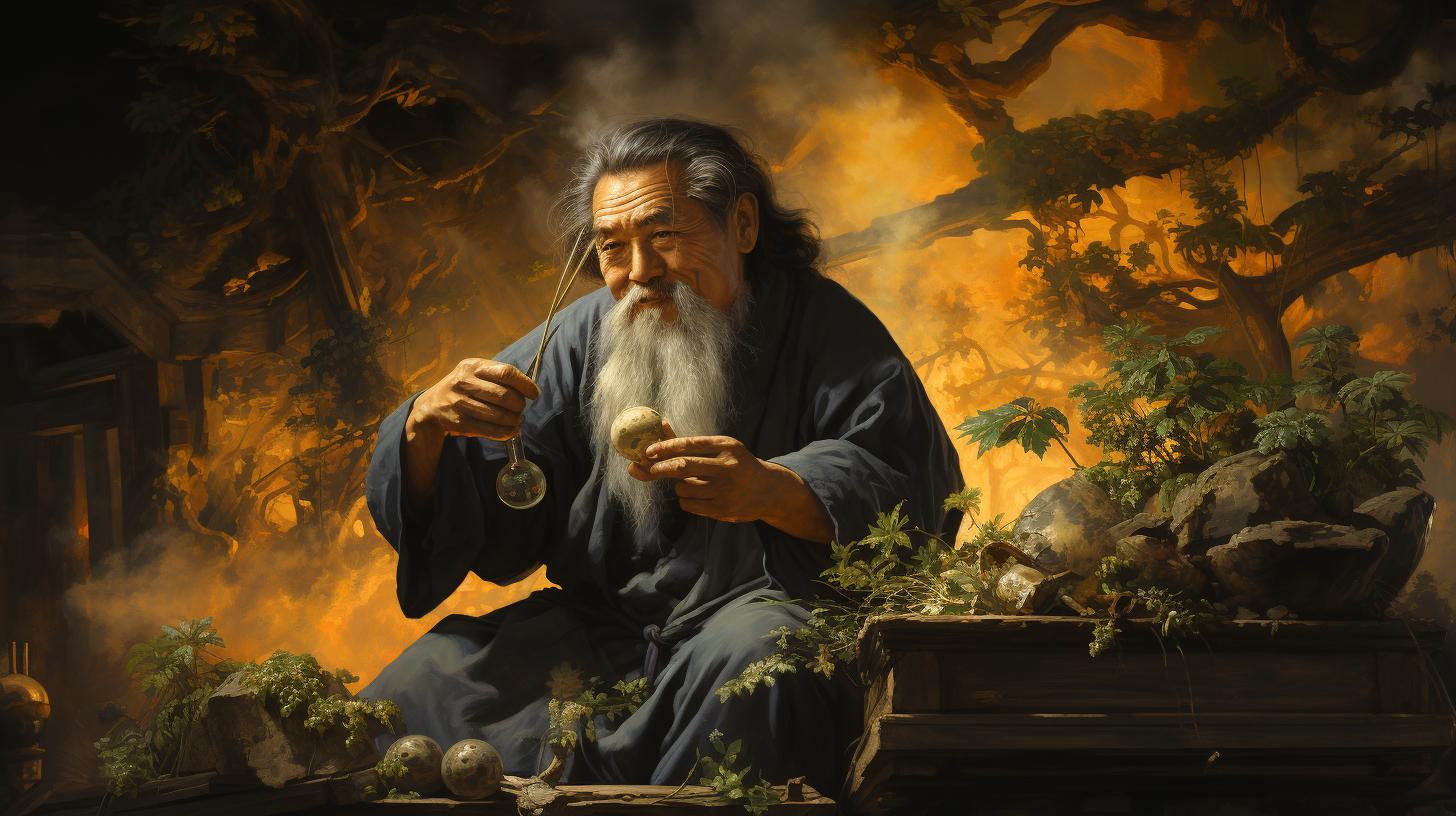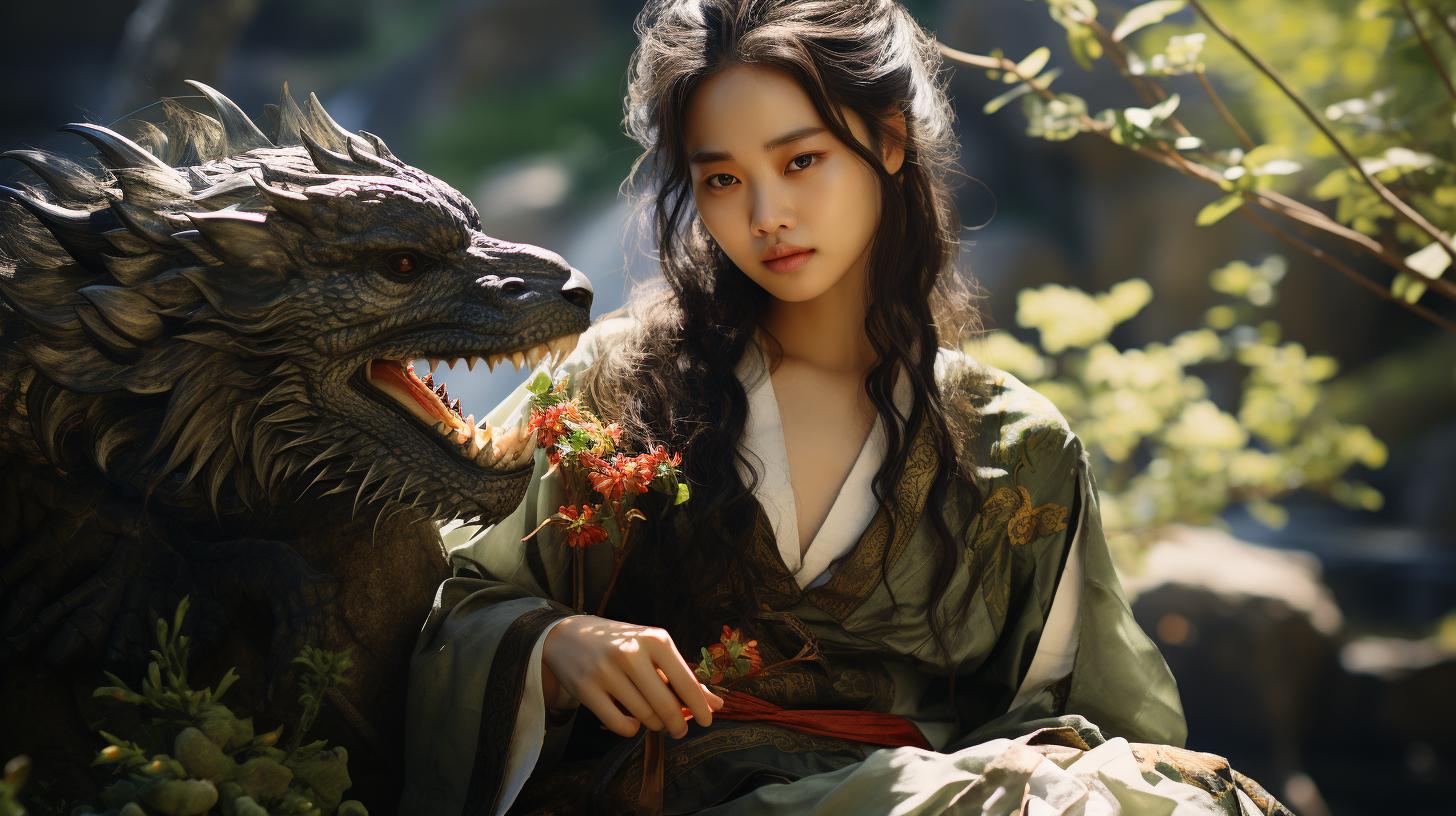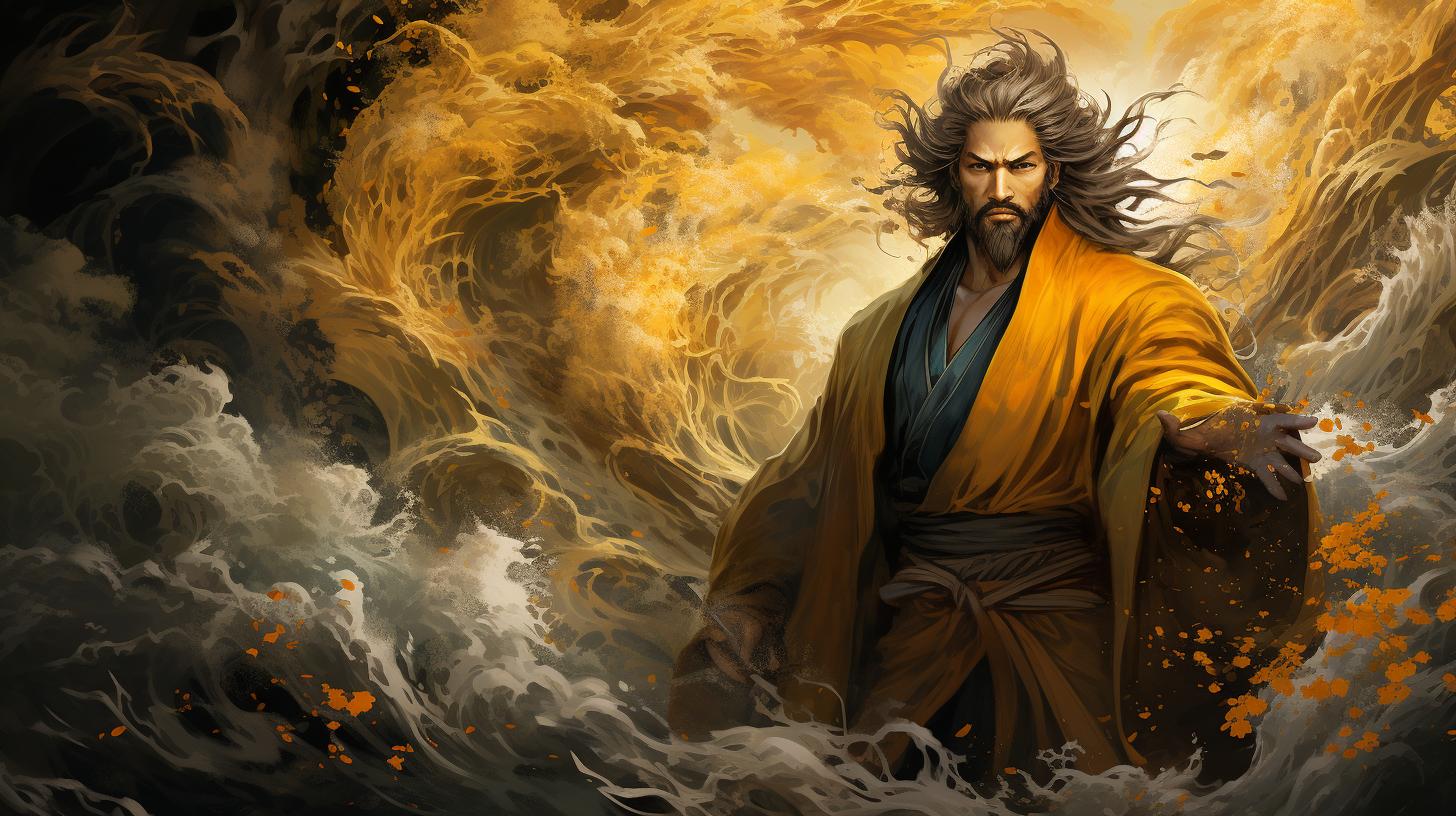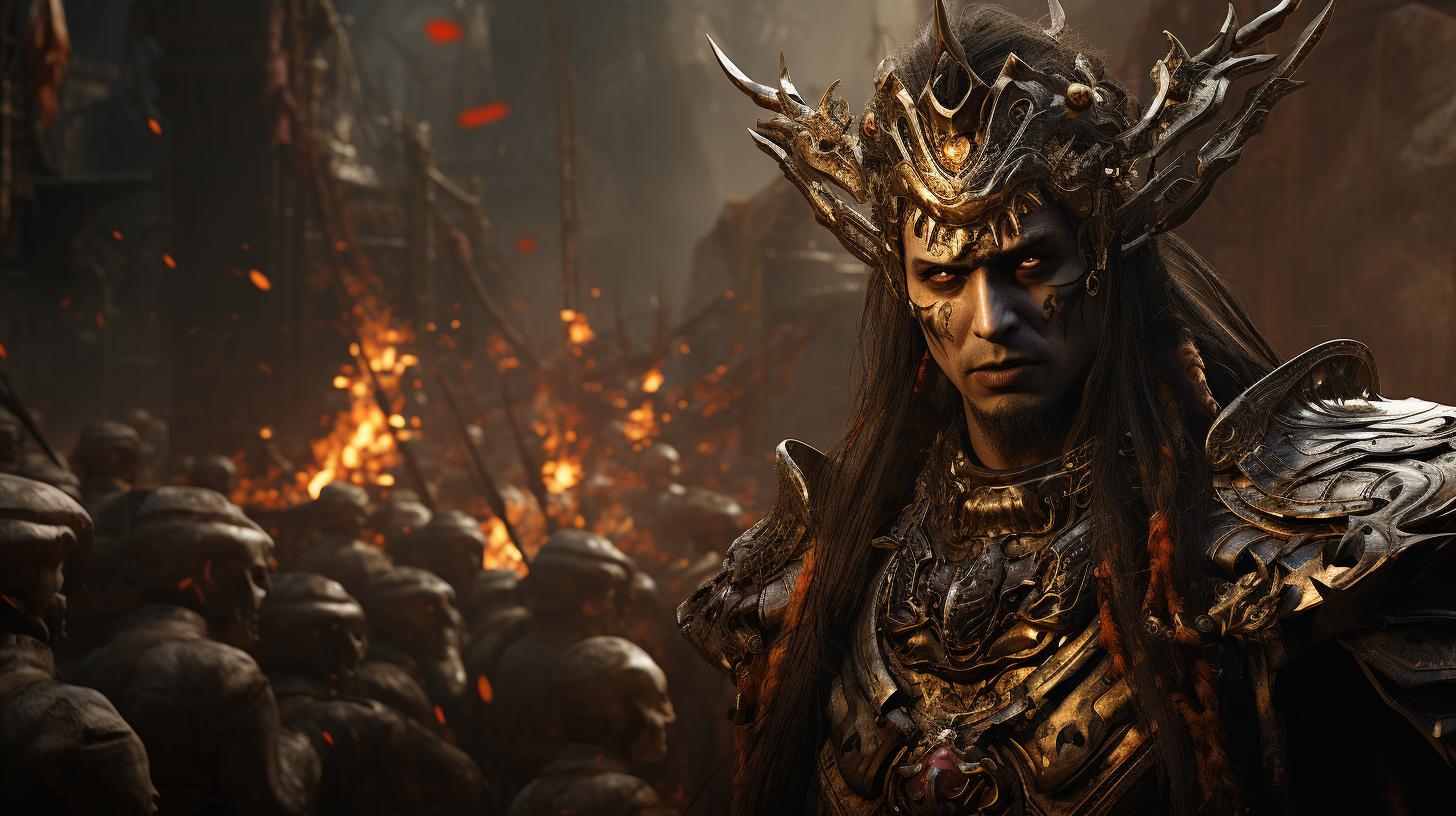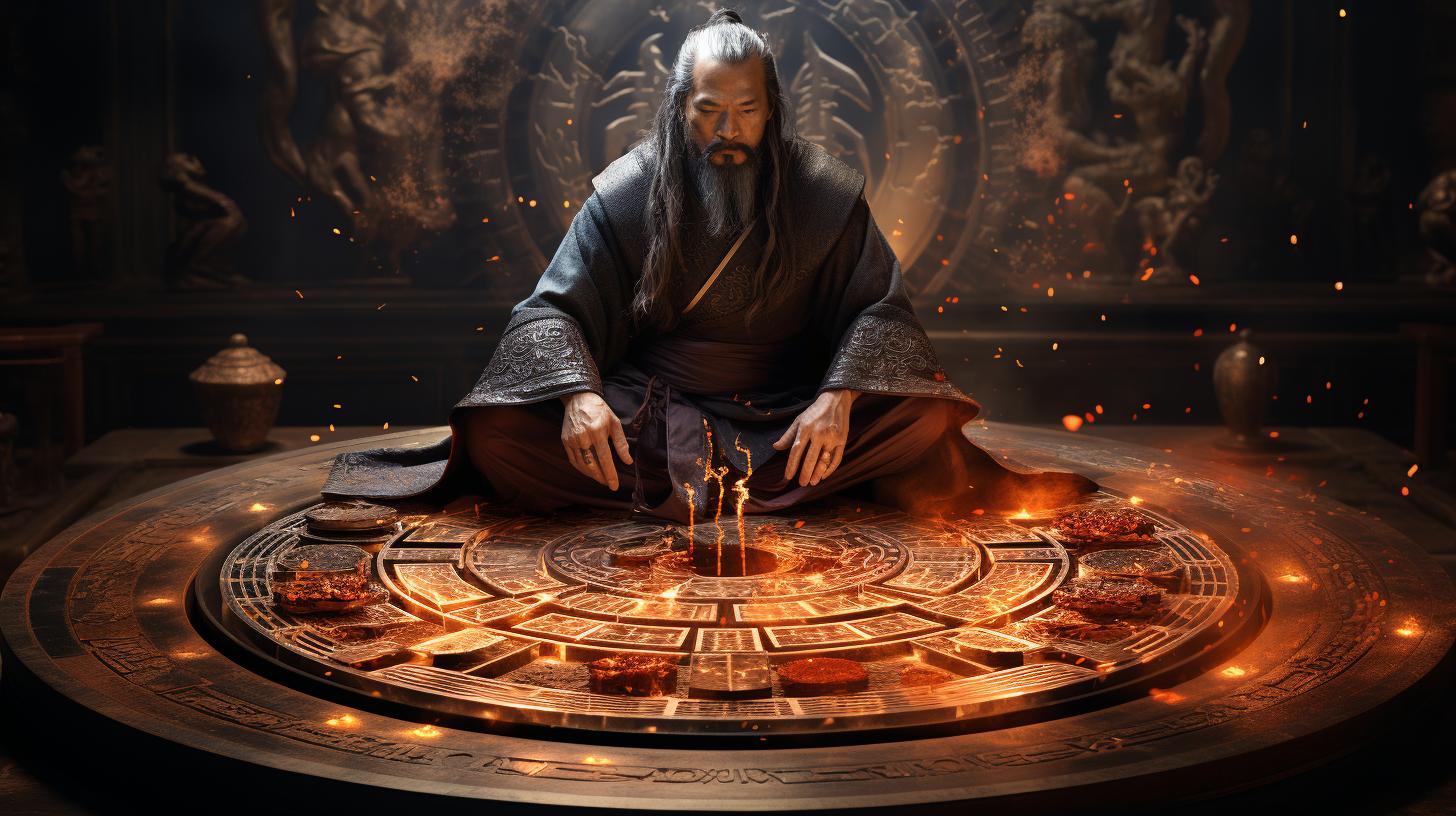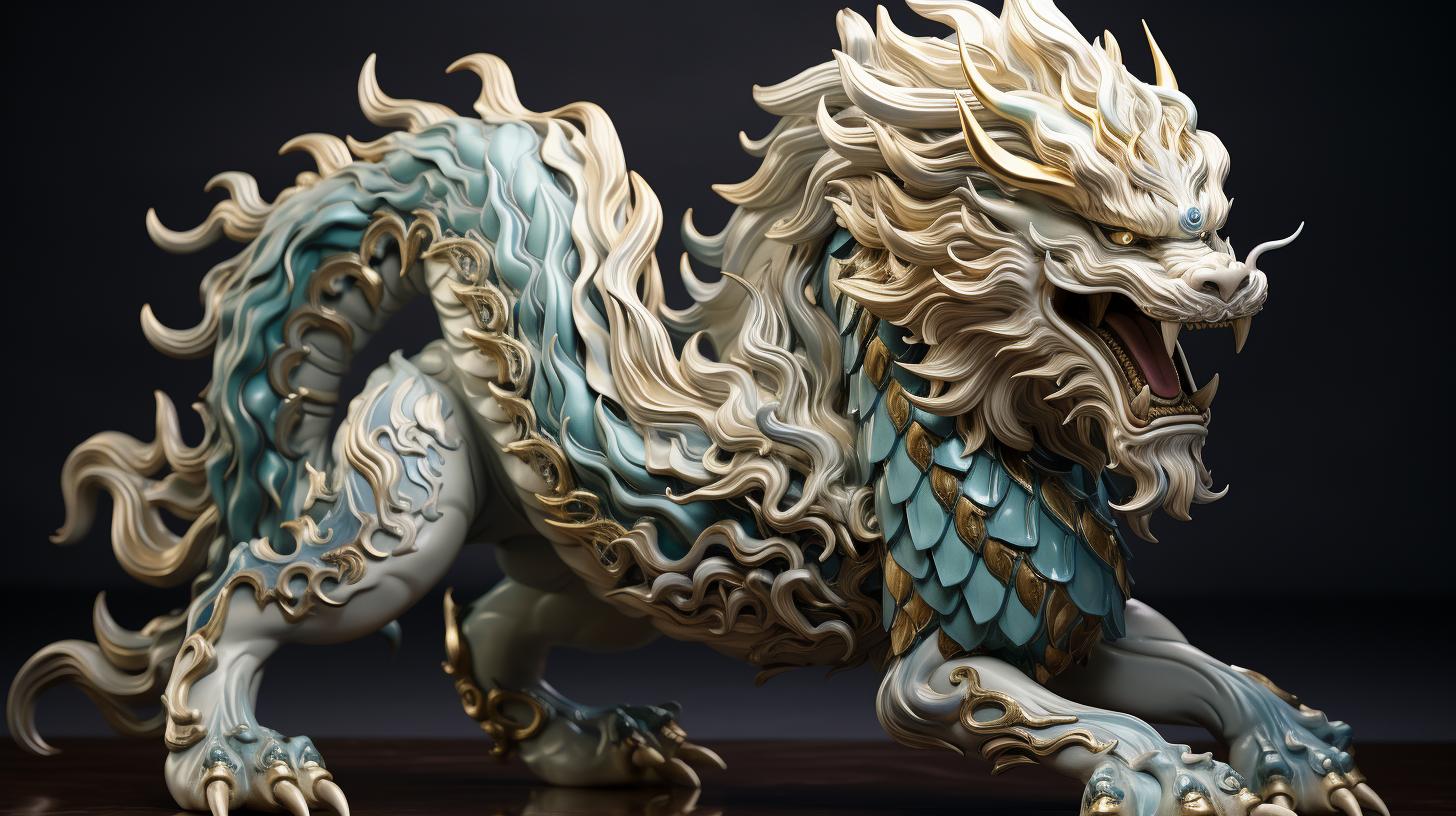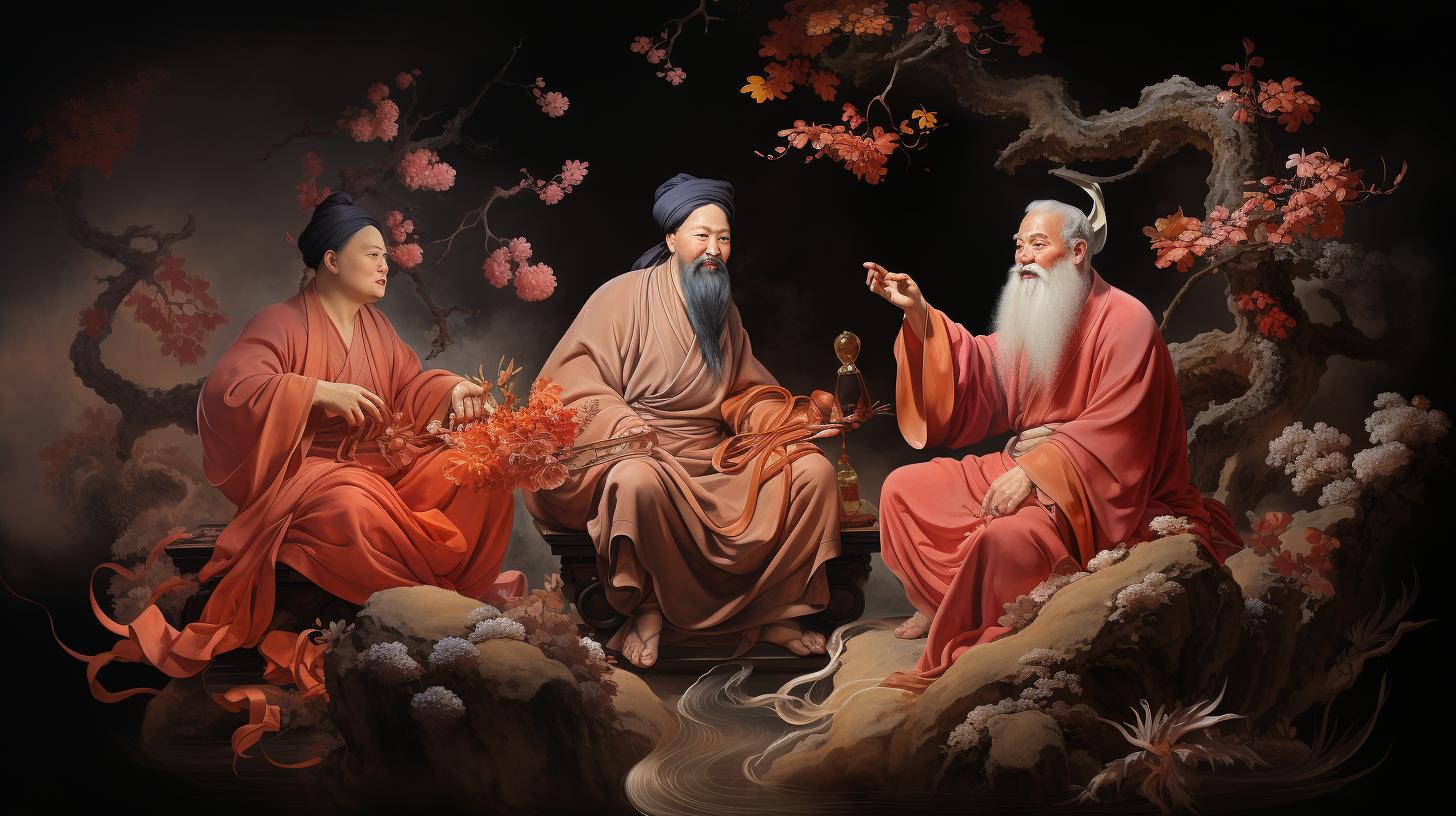Zao Jun Kitchen God: A Divine Tradition in American Culinary Culture
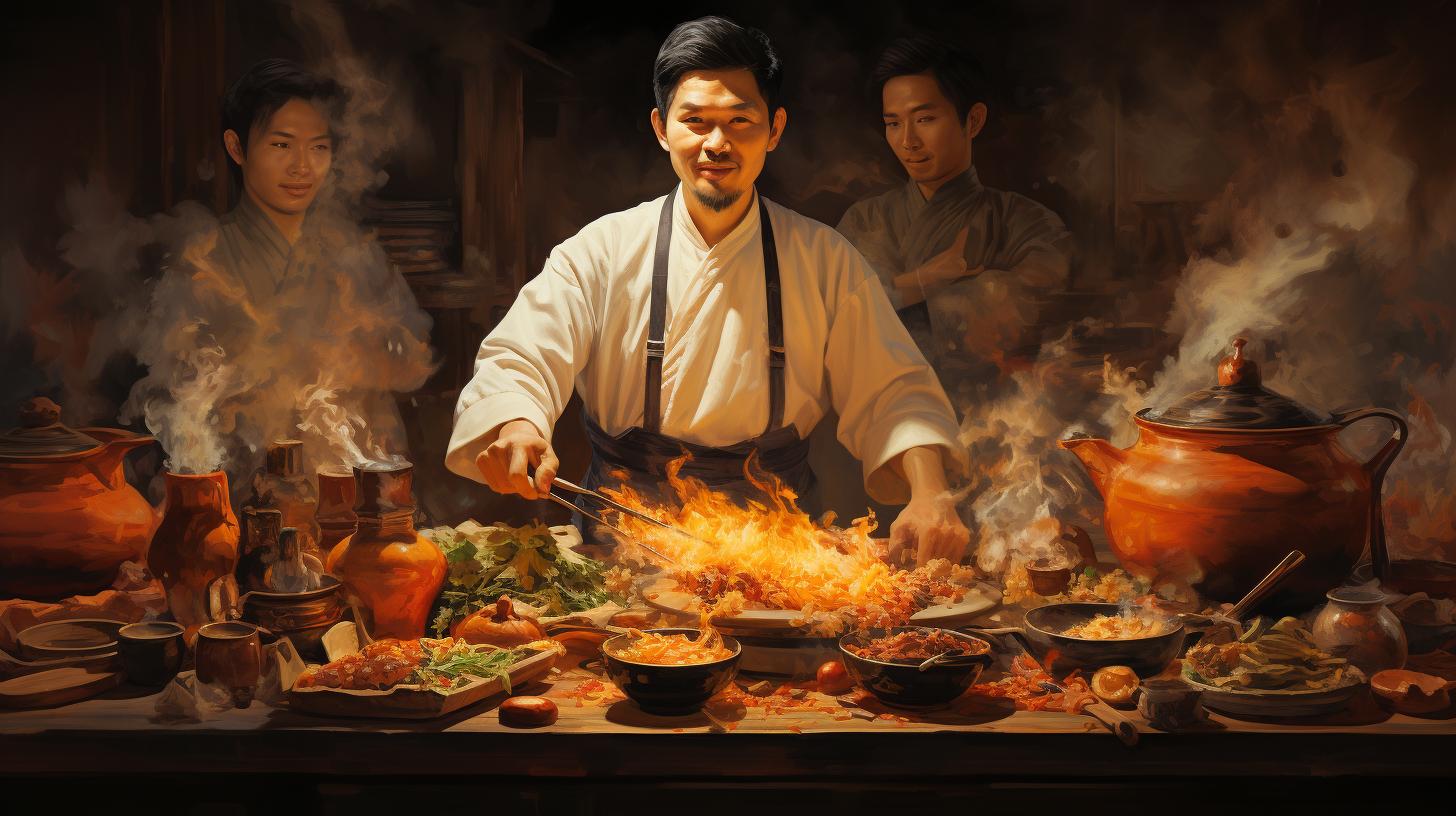
The Zao Jun Kitchen God tradition holds deep cultural significance in Chinese households during the Chinese New Year celebration. As the keeper of the hearth, Zao Jun symbolizes the protector of the family and is often represented in art, literature, and popular culture.
Legends and myths surround Zao Jun, including his journey to the heavens and his role in the creation of the Chinese cosmos. Today, Zao Jun’s influence can be seen in contemporary Chinese society, with adaptations and interpretations resonating in Asian-American communities and beyond.
Exploring the Zao Jun Kitchen God Tradition
The Zao Jun Kitchen God tradition is a fascinating aspect of Chinese culture that holds significant cultural significance and is closely tied to the Chinese New Year celebration. This ancient tradition revolves around the veneration of Zao Jun, a legendary figure believed to be the Kitchen God.
Dive into the origins, beliefs, rituals, and the role of Zao Jun in Chinese households to gain a deeper understanding of this unique cultural tradition.
The Origins and Cultural Significance of Zao Jun
Zao Jun, also known as the Stove God or the Kitchen God, has deep roots in Chinese mythology and folklore. He is believed to have been a mortal who lived during the Tang Dynasty.
According to popular legends, Zao Jun ascended to the heavens through his noble deeds and was appointed as the divine Kitchen God. His role in Chinese culture goes beyond being a mere deity of the stove; he is revered as a protector and guardian of the household.
Zao Jun and the Chinese New Year Celebration
During the Chinese New Year, Zao Jun plays a pivotal role in the festivities. It is customary for families to offer sacrificial ceremonies to the Kitchen God a few days before the lunar New Year’s Eve.
These ceremonies involve offering food and burning incense as a gesture of respect and gratitude. The belief is that Zao Jun will report to the Jade Emperor about the family’s behavior and conduct over the past year.
The Beliefs and Rituals Surrounding Zao Jun
Various beliefs and rituals surround the veneration of Zao Jun in Chinese households. Families may clean their kitchens thoroughly to welcome the Kitchen God and ensure a fresh start to the New Year.
It is also common to hang portraits or posters of Zao Jun near the stove, acting as a spiritual reminder of his presence and protection. Additionally, offering sweet foods to the Kitchen God symbolizes the desire for a sweet and prosperous year ahead.
The Role of Zao Jun in the Chinese Household
Zao Jun’s role extends to the daily routines of Chinese households. He is believed to observe the actions and behaviors of each family member, rewarding good deeds and punishing wrongdoings.
As the divine Kitchen God, Zao Jun is a symbol of moral integrity, honesty, and harmony within the family. Families look up to Zao Jun as a source of guidance and inspiration in maintaining household order and fostering familial bonds.
Legends and Myths Surrounding Zao Jun
Legends and myths have always played a significant role in shaping the story of Zao Jun. These tales bring to life the rich history and cultural beliefs that revolve around this revered kitchen god.
From his former wife to his celestial journey and his role in the creation of the Chinese cosmos, the legends surrounding Zao Jun capture the imagination and reverence of the Chinese people.
Zao Jun and His Former Wife
One of the captivating legends surrounding Zao Jun involves his relationship with his former wife. According to the myth, Zao Jun was once married to a beautiful woman who tragically passed away.
Consumed by grief and loneliness, he embarked on a journey to the heavens in search of his beloved.
Zao Jun’s Journey to the Heavens
Zao Jun’s journey to the heavens is a tale of determination and divine intervention. It is believed that he traveled through various celestial realms, facing numerous trials and tribulations along the way.
Ultimately, through his unwavering devotion and spirituality, Zao Jun reached the heavens and was granted a special position as a kitchen god.
Zao Jun and the Creation of the Chinese Cosmos
Another fascinating myth surrounding Zao Jun is his involvement in the creation of the Chinese cosmos.
It is said that he played a crucial role in establishing order and balance in the universe. With his divine powers, Zao Jun helped shape the heavens, the earth, and everything in between, ensuring harmony and prosperity for all.
The legends and myths surrounding Zao Jun not only add depth and intrigue to his character but also provide insight into the cultural beliefs of the Chinese people. These stories are passed down through generations, reinforcing the importance of Zao Jun in Chinese folklore and customs.
Symbolism and Representations of Zao Jun
The figure of Zao Jun holds profound symbolism and is represented in various aspects of Chinese culture. This section explores the significance of Zao Jun as the Keeper of the Hearth, the Protector of the Family, and his presence in Art, Literature, and Popular Culture.
Zao Jun as the Keeper of the Hearth
Zao Jun is revered as the Keeper of the Hearth in Chinese households. The hearth represents the center of the home, where food is cooked and warmth is provided. Zao Jun’s role as the Keeper of the Hearth symbolizes his guardianship over the family’s sustenance and well-being.
He is believed to ensure an abundant harvest, keep away misfortune, and bring good health to the household.
Zao Jun as the Protector of the Family
As the Protector of the Family, Zao Jun safeguards the household from negative energies and evil spirits. He is regarded as a benevolent deity who watches over family members, granting them safety and protection from harm.
Through offerings and prayers, families seek Zao Jun’s blessings for a harmonious and prosperous life.
Zao Jun in Art, Literature, and Popular Culture
Zao Jun’s image is commonly depicted in various forms of art, literature, and popular culture. Paintings often portray him as an elderly man with a long white beard, emphasizing his wisdom and experience.
His representation in literature and folktales highlights his mythical journey and his importance in Chinese cosmology. Zao Jun’s presence can also be found in modern media, as his character has been adapted into films, television shows, and even video games, appealing to wider audiences.
Modern Adaptations and Interpretations of Zao Jun
As the Zao Jun kitchen god tradition continues to evolve, it has found its place in contemporary Chinese society, reflecting the changing dynamics of modern life. Additionally, scholars and activists have explored feminist perspectives on Zao Jun, shedding light on gender roles and the representation of women in traditional folklore.
Furthermore, Zao Jun’s influence has extended to Asian-American communities, where his presence is celebrated and cherished as a symbol of cultural heritage. Moreover, Zao Jun’s significance has transcended geographical boundaries, gaining recognition in the global context for its rich cultural symbolism and universal values.
Zao Jun in Contemporary Chinese Society
In contemporary Chinese society, Zao Jun has become more than just a deity associated with the kitchen and home. He is seen as a guardian of Chinese culinary traditions, emphasizing the importance of family unity and cultural heritage.
Many modern households continue to offer prayers and offerings to Zao Jun, seeking his blessings for prosperity and well-being in their daily lives.
Feminist Perspectives on Zao Jun
Some feminist scholars have analyzed the Zao Jun tradition through a gender lens, questioning the traditional narrative that portrays Zao Jun as a male figure while overlooking the contributions and roles of women in the kitchen and household.
These perspectives challenge the existing gender hierarchy and emphasize the need for inclusive and balanced representations of gender in folklore and cultural traditions.
Zao Jun’s Influence in Asian-American Communities
Within Asian-American communities, Zao Jun serves as a powerful symbol of cultural heritage and identity. Celebrated during the Chinese New Year festivities, Zao Jun’s image is displayed prominently, reminding individuals of their roots and providing a sense of belonging.
Chinese-American families continue to pass down the Zao Jun tradition to younger generations, ensuring its preservation and relevance in the diaspora.
Zao Jun in the Global Context
The story and symbolism of Zao Jun have gained recognition beyond Chinese and Asian communities, capturing the interest of people worldwide. Zao Jun embodies universal values such as family, unity, and reverence for ancestral traditions.
As a result, Zao Jun has become a cultural icon that transcends borders, promoting intercultural exchange and appreciation for diverse traditions around the globe.
.

